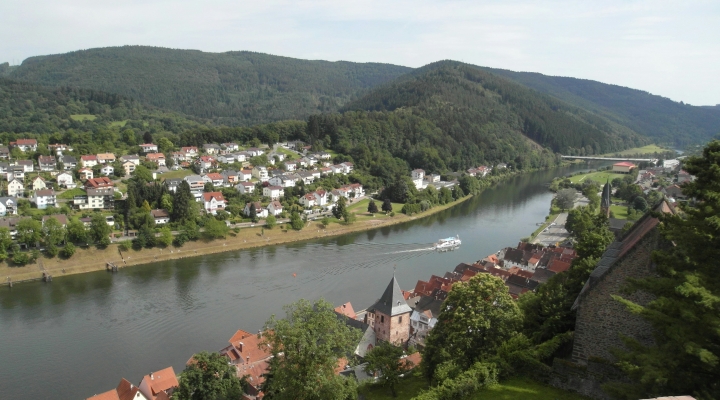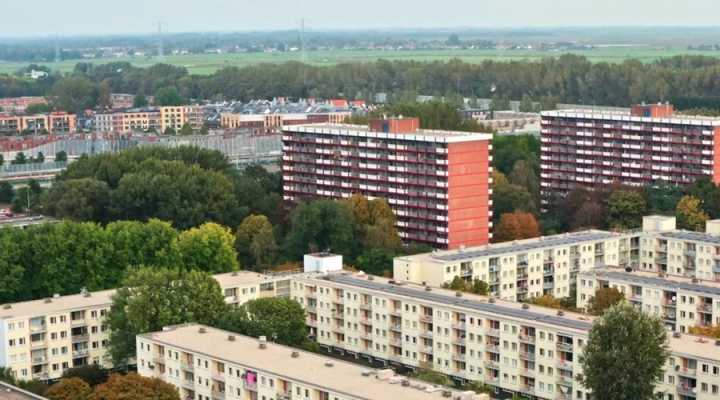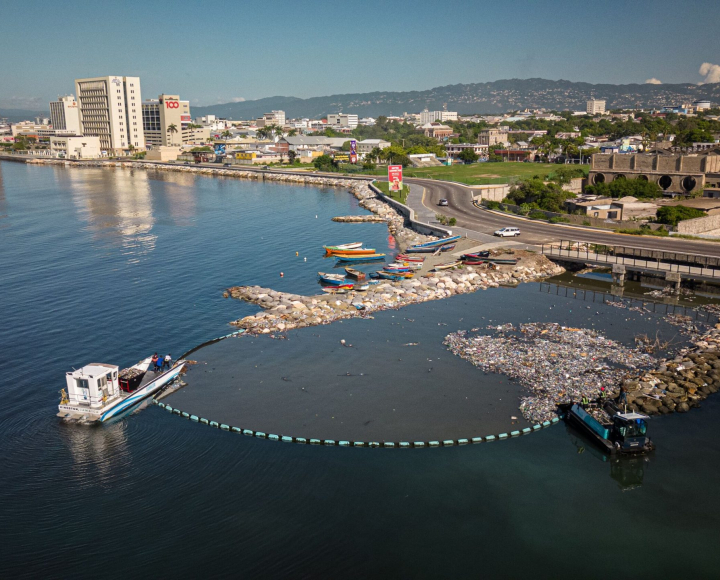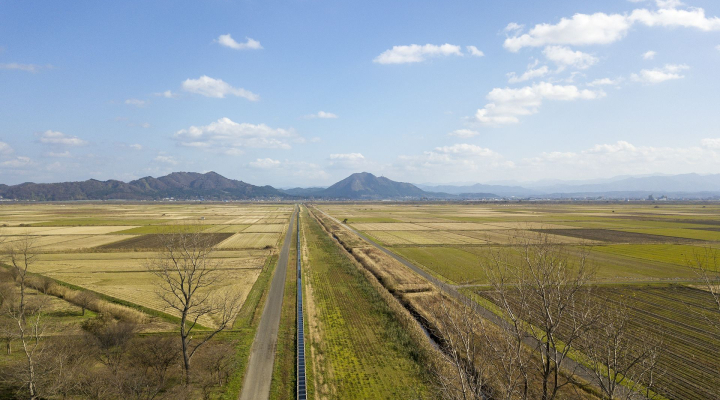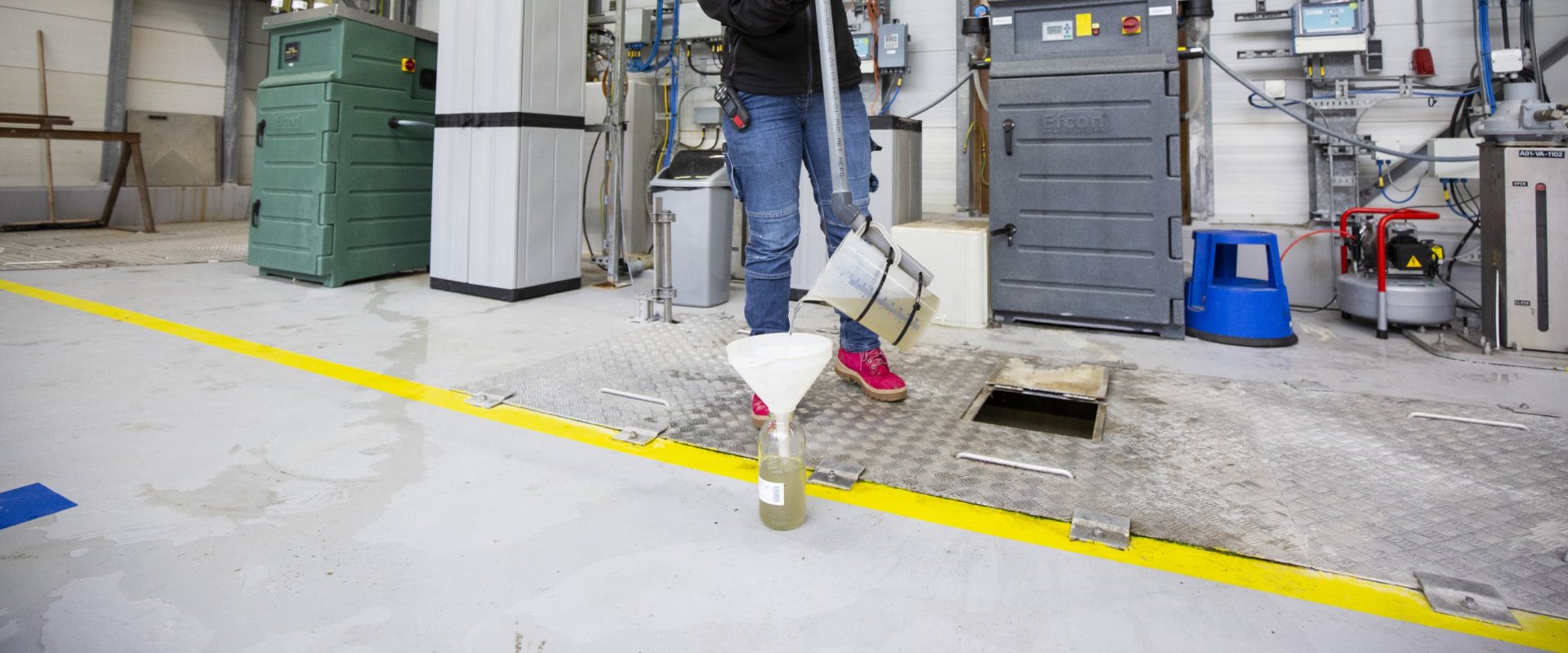
Water Innovation Award 2021 for Big Brown Data monitoring
The collection and analyses of samples at all Dutch waste water treatment plants to monitor the spreading of Corona virus SARS Cov-2, was one the winners of the Water Innovation Awards 2021 by the Dutch regional water authorities.
Big Brown Data is a joint project by the Dutch ministry of Health, Welfare and Sport, the Dutch National Institute for Public Health and the Environment - RIVM and all regional water authorities in the Netherlands.


New technologies for water management
Dutch regional water authorities or so-called "water boards" are responsible for flood protection, regional water management and treatment of urban wastewater. Every two years, all 21 authorities are invited to participate in the Water Innovation Awards and enter the competition with their latest technologies or services, regarding climate adaptation, future developments, healthy environment, drought prevention and water treatment.
This year’s competition awarded five winning entries in different categories: Big Brown Data (future developments), AdOx (healthy environment), rotating bulkhead for culvert (climate adaptation), thermal energy recovery with sheet piles (climate neutral) and critical gasification of sewage sludge (public award).
The awards were announced during an online ceremony on 2 December.
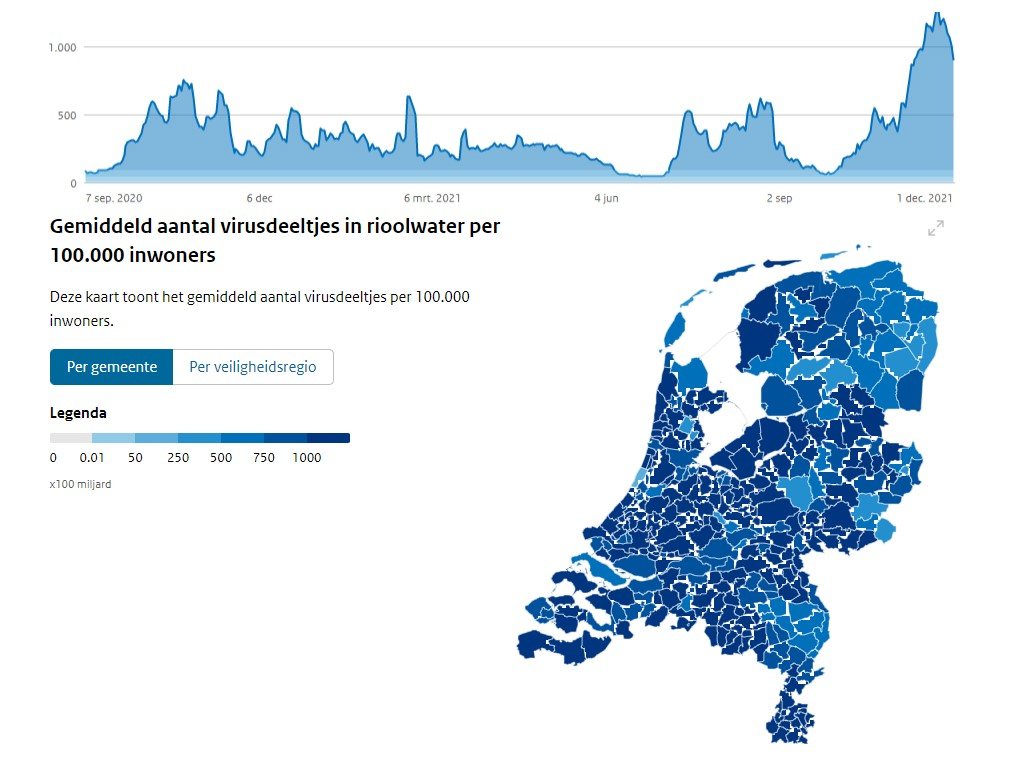

Control of Covid-breakouts
Since September 2020, waste water samples are taken at all 313 Dutch municipal waste water treatment plants for early detection of Covid-19. Initially this was done once a week, but the frequency has been increased to a minimum of three times a week.
The national coverage of the sewer surveillance shows on a daily basis in which areas of the country the number of Covid-particles is increasing or decreasing.
All samples are analysed by the National Institute for Public Health and the Environment (RIVM) and the data is published on the National Corona dashboard as an early warning detection parameter, next to the testing of individuals. The sewer surveillance has proven that an increase in corona cases can be detected a few days earlier instead of waiting for the outcomes of individual testing.
The surveillance has also proven its worth in areas where people are reluctant to get themselves tested if they have symptoms. In a district in Rotterdam a big difference was revealed between the low numbers of individual testing and the high number of Covid-particles in the district’s sewer system. As a result, the health authorities started a public campaign that urged citizens to get themselves tested.
Other potential health risks
At this moment, all attention goes to the monitoring of sewage water on Covid-particles. However, the Big Brown Data monitoring includes more health issues. Sewer surveillance is already used in the Netherlands as an early warning for the spreading of the polio virus. For the future, the Big Brown Data project has the ambition to include more health risk indicators to the monitoring, such as the increase of obesity and diabetes. Non-regular measuring of wwtp-influent has also revealed the increasing use of drugs in certain cities.
The monitoring of health risks by means of national sewer surveillance is seen by the Dutch regional water authorities as an important societal welfare service.
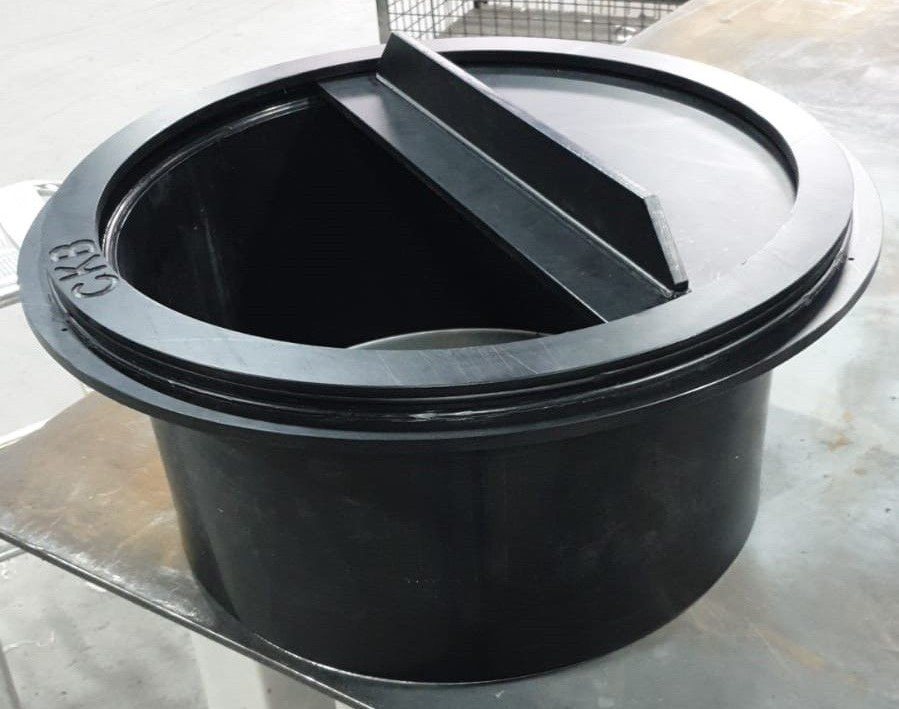

Other winners
The other winners of the Water Innovation Awards 2021 included:
- AdOx developed by Delft University of Technology as an effluent polishing for the removal of medicine residues from waste water by adsorption to zeolite granules.
- Energy Sheet Pile, developed by Crux Engineering, a heat recovery system as part of a sheet pile of a quay wall to extract heat from the surface water.
- Rotating bulkhead for culvert, developed by regional water authority De Dommel, that can be placed on the head of a culvert and easily turned open (heavy rain fall) and closed (drought).
- Supercritical gasification, developed by SCW, to turn all types of wet biomass such as sewage sludge, into green gas.




